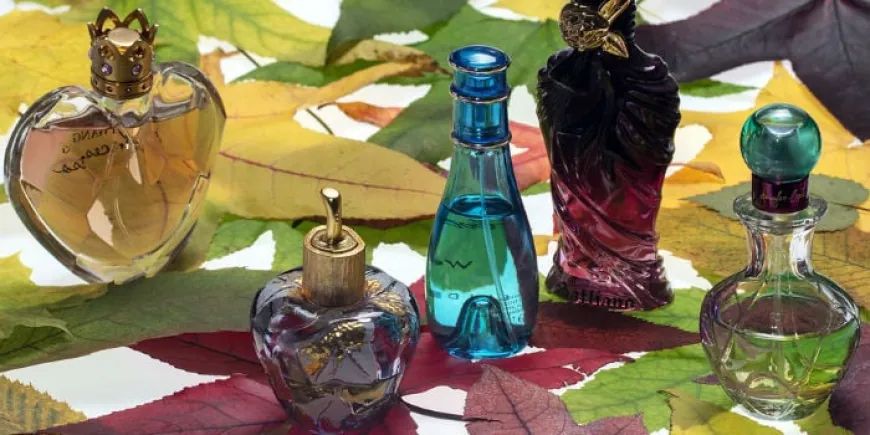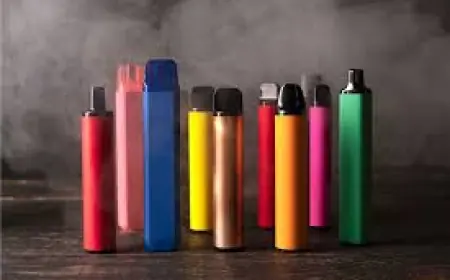The Role of Perfume in Pakistani Culture: A Historical Perspective
From the refined scents of essential oils used in ancient rituals to the modern allure of luxury brands like Hugo Boss, perfumes hold a special place in the daily lives of Pakistanis.

Fragrance has long been an integral part of Pakistani culture, deeply intertwined with the region’s history, religious practices, and social customs. From the refined scents of essential oils used in ancient rituals to the modern allure of luxury brands like Hugo Boss, perfumes hold a special place in the daily lives of Pakistanis. As global luxury perfumes, such as Hugo Boss, become more accessible, many people are curious about the Boss perfume price in Pakistan. But the significance of perfume goes beyond price tags—it's about tradition, identity, and a celebration of heritage.
Ancient Roots of Fragrance in South Asia
The use of fragrance in what is now Pakistan can be traced back thousands of years to the Indus Valley Civilization, where perfumes were made from locally sourced flowers, herbs, and essential oils. Archaeological discoveries indicate that the ancient inhabitants of Mohenjo-Daro and Harappa used rudimentary distillation methods to extract perfumes for religious ceremonies and personal adornment. These early scents were more than just pleasant aromas—they were believed to have spiritual and medicinal properties.
Throughout history, the trade routes connecting South Asia with the Middle East, Central Asia, and beyond introduced a variety of exotic ingredients used to create unique fragrances. From the luxurious attars (concentrated natural perfumes) popularized by Mughal emperors to the oils and incense brought by Arab traders, the region became a hub of olfactory craftsmanship. The tradition of using scents for both personal and religious purposes continued to evolve during Islamic rule, further embedding perfumes in Pakistani cultural practices.
Religious Significance of Perfume in Pakistani Culture
Perfume holds a deep spiritual significance in Pakistan, especially within Islamic traditions. Fragrance is often seen as a means of purification and devotion, reflecting one’s respect for divine presence. In mosques, homes, and even personal spaces, perfumes are used to create a sense of peace and sanctity. Islamic traditions emphasize cleanliness, and perfumes have historically been considered a symbol of both physical and spiritual purity.
Many Pakistanis use fragrance oils or bakhoor (incense) in their homes, especially during religious holidays such as Eid. Additionally, it is common for individuals to wear perfumes when attending Jummah (Friday prayers) or visiting a mosque. The scents are not just a marker of personal hygiene but a way to honor communal and religious obligations.
Perfume as a Social Statement
In Pakistani culture, perfume is not merely a personal accessory but also a symbol of status and sophistication. Whether it's a casual gathering, a formal occasion, or a wedding celebration, wearing the right fragrance conveys elegance, class, and social standing. Historically, this was particularly true for the royal courts of the Mughal Empire, where fragrances were often made from rare ingredients and carefully crafted for the elite.
Today, wearing international brands is seen as a status symbol, with people often gravitating towards high-end luxury perfumes. Modern perfumes like Hugo Boss, Chanel, and Dior have found a niche in the Pakistani market, with many individuals seeking to enhance their personal style with these global brands. As international trade has expanded, the perfume price in Pakistan for luxury brands has become more competitive, making these once-exclusive items more accessible to the masses.
The Role of Perfume in Weddings and Celebrations
Perfume plays a pivotal role in weddings and festive celebrations in Pakistan. Brides and grooms are often gifted exquisite fragrances as part of their wedding dowry or trousseau, and guests attending the events are expected to adorn themselves with enticing scents. The use of traditional attars and modern perfumes creates an atmosphere of joy, luxury, and festivity.
In many households, it is customary to burn incense or use essential oils to mark special occasions, and gifting perfumes is considered a thoughtful gesture that reflects appreciation and respect. Fragrances are also seen as an ideal present during occasions like Eid or during significant life events such as engagements, housewarmings, and graduations.
Modern Trends and Accessibility of Perfume
As Pakistani society becomes more globalized, the desire for international fragrances has grown significantly. Discount stores and online platforms have played a crucial role in making luxury perfumes more accessible to a broader audience. Stores like Discount Store offer a variety of international fragrances, enabling consumers to enjoy premium scents at more affordable prices. This shift in the market means that brands like Hugo Boss are no longer limited to the elite but can be enjoyed by a wider range of customers.
The growing accessibility of these perfumes has sparked a deeper appreciation for scent culture among the younger generation. More and more consumers are exploring different brands and signature fragrances that align with their personal style, further integrating perfume into daily life. However, despite these modern trends, traditional fragrances such as attars remain popular, particularly among older generations who prefer the deeper, longer-lasting aromas of natural ingredients.
Conclusion
Perfume in Pakistan is far more than just a fashion accessory—it's a reflection of the country’s rich cultural and historical tapestry. From its ancient roots in the Indus Valley Civilization to its spiritual significance in Islamic practice and its role in modern-day social customs, fragrance has remained a consistent and cherished part of Pakistani life. As international brands like Hugo Boss become more accessible thanks to platforms like Discount Store, the allure of luxury perfumes continues to captivate a new generation, blending tradition with modernity in the world of scent.
For those looking to explore the wide range of fragrances available today, understanding the history of perfume in Pakistan offers not only a deeper appreciation of its cultural importance but also a glimpse into the evolving trends that shape the perfume market in the country. Whether you’re searching for a timeless attar or a luxury brand at a competitive perfume price in Pakistan, the role of fragrance in shaping personal and cultural identities is undeniable.
What's Your Reaction?
 Like
0
Like
0
 Dislike
0
Dislike
0
 Love
0
Love
0
 Funny
0
Funny
0
 Angry
0
Angry
0
 Sad
0
Sad
0
 Wow
0
Wow
0













































